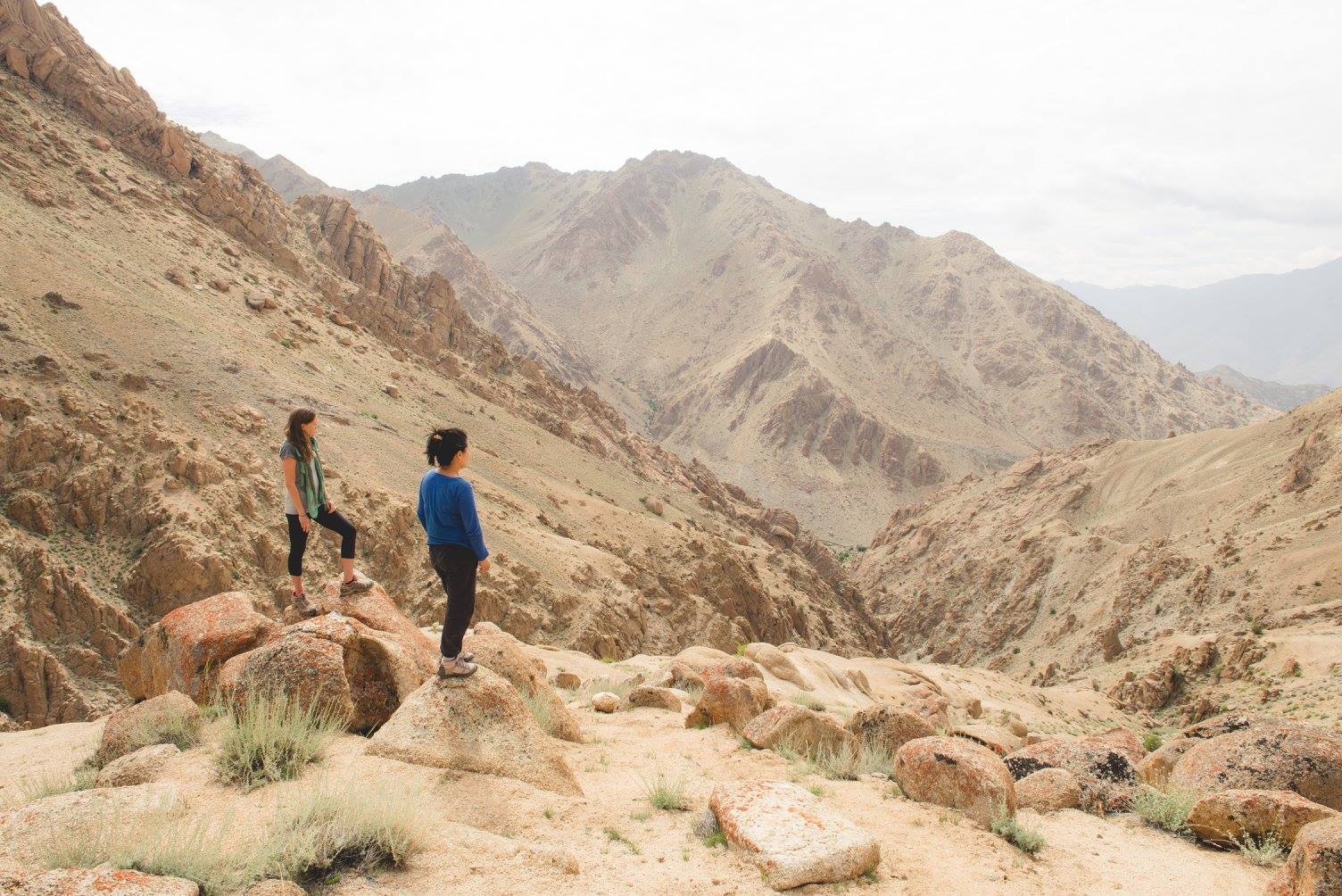
Ladakhi Women’s Travel Company founder and senior guide Thinlas Chorol Is Clearing The Path For Women’s Empowerment In The Himalayas
by Heather Cassell
Thinlas Chorol wants to empower Ladakhi women.
As the founder and senior guide of the region’s first women-owned trekking and tour company, Ladakhi Women’s Travel Company, the 36-year-old’s dream is to not only grow her tour and trekking company bigger but to also “encourage women to work more professionally,” she wrote in an email interview with Girls That Roam.
She’s constantly thinking of ways to keep women employed and to provide services that will help women earn a living during the slow season of her business during November through April, the late fall through early spring months. During these colder months, the company runs only one or two winter treks into the Himalayas.
Leh is the largest town in Ladakhi, a region of the Jammu and Kashmir state of India.
Thinlas opened the Ladakhi Women’s Café, but, “Very few showed interest,” she wrote about her guides.
“So, now it runs as a completely separate business with completely separate staff,” she wrote.
The café is a success. Her other attempts to keep women employed during the off-season, such as a tomato canning business didn’t take off.
Many of her guides are students, so they return to school during the winter season, or they simply take the time off until the next season or find other employment, she added.
Even she takes a little break during the off seasons to travel and play ice hockey depending on her time.
She also continues to work for the agency as well as occasionally for American-based Where There Be Dragons. The travel company provides cultural learning experiences for students and adults in 19 countries around the world.
Thinlas likes traveling and has traveled to Sweden, where her husband is a national, several times as well as to Thailand and the United States in California and New England for business.
She also co-founded the Ladakhi Women’s Welfare Network, to help women in emergency situations, in 2014, and a Learning Center. The organization purchased land to build a women’s shelter, but both projects have been held up by bureaucracy, she wrote.
“There are more cases of women needing help compared to the past,” wrote Thinlas. “The shelter is really just an emergency solution to the larger problems.”
“Now the women can’t do anything if they are in a bad situation because there is no first step they can take,” she wrote. “If there is a shelter, there is something very specific they can do.”
While women are becoming more educated, like her younger self they lack confidence in their abilities.
“They need to learn ways to be more confident. They need to know what their rights are. They need to know what they can do in different situations,” wrote Thinlas.
Yes, I Can
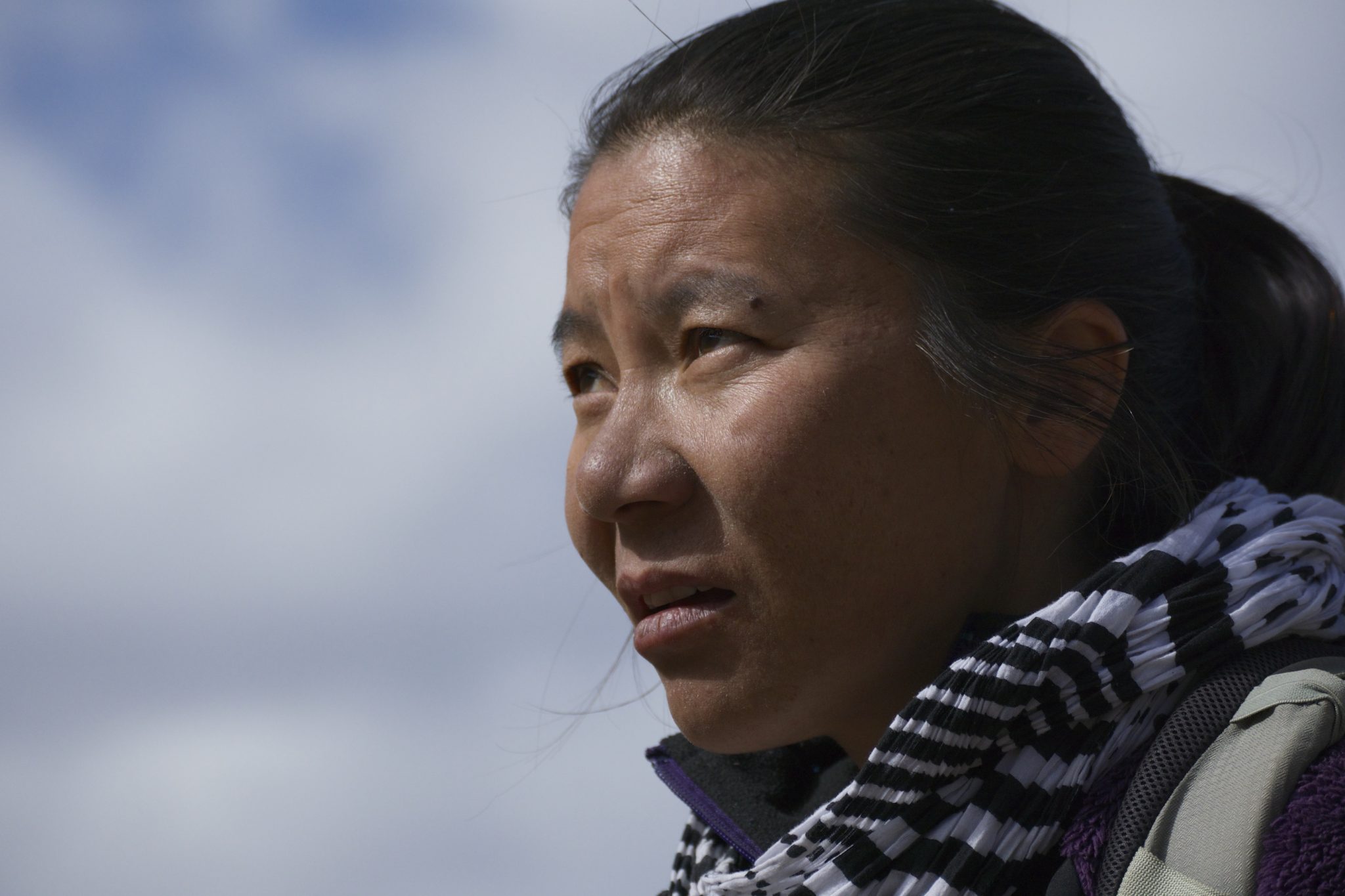
Thinlas became interested in trekking and guided tours as a student at Students Educational and Cultural Movement of Ladakhi, she explained.
She also learned how to speak English at school and through her future guests on tours she led.
Two companies rejected her from becoming a trekking guide, which inspired her to prove that women could become trekking guides.
“I wanted to show that women can also work in this field,” wrote Thinlas, who felt “strange” but recognized that she needed more skills.
“I also felt that I needed to have more confidence and more skills,” she wrote. “After doing some training, I gained more confidence.”
Being a trekker is different from being a guide, she explained. Trekking guides go into the mountains usually for several days at a time.
The same mountains she was very familiar with growing up tagging along with her father with their goats and sheep. That didn’t seem to matter to the travel agency owners, they still rejected her applications.
It is much easier to become a tour guide taking travelers on sightseeing and monastery excursions. Many students supplement their income by taking individuals or groups from outside of Ladakhi on tours, she wrote.
This is how she got started giving tours while she was still in school.
Later, she started freelancing as a trekking and tour guide. She continued her education taking courses in basic mountaineering, advanced mountaineering and outdoor leadership, but there isn’t a “certificate” program available.
Blazing A Trail
Thinlas comes from a large family that hasn’t thought any different of her for her career choice.
“None of my siblings had a very strong opinion either way, same as my father,” wrote Thinlas, who is the youngest of five.
She also has two half-siblings, a brother and a sister who are younger than her, from her father’s second marriage. Her mother died when she was young.
When she was younger, one of her brothers only encouraged her to get a government job, which is a coveted position by many youths in her city.
She still faced obstacles, but she was never asked not to lead tours.
“I was never asked not to work as a guide,” she wrote when GTR asked if she faced any obstacles to becoming a tour guide. “People didn’t think it was appropriate, but nobody tried to stop me.”
In 2009, with 40 Indian Rupees: 20 borrowed from her father and 20 borrowed from a friend, Thinlas launched the Ladakhi Women’s Travel Company.
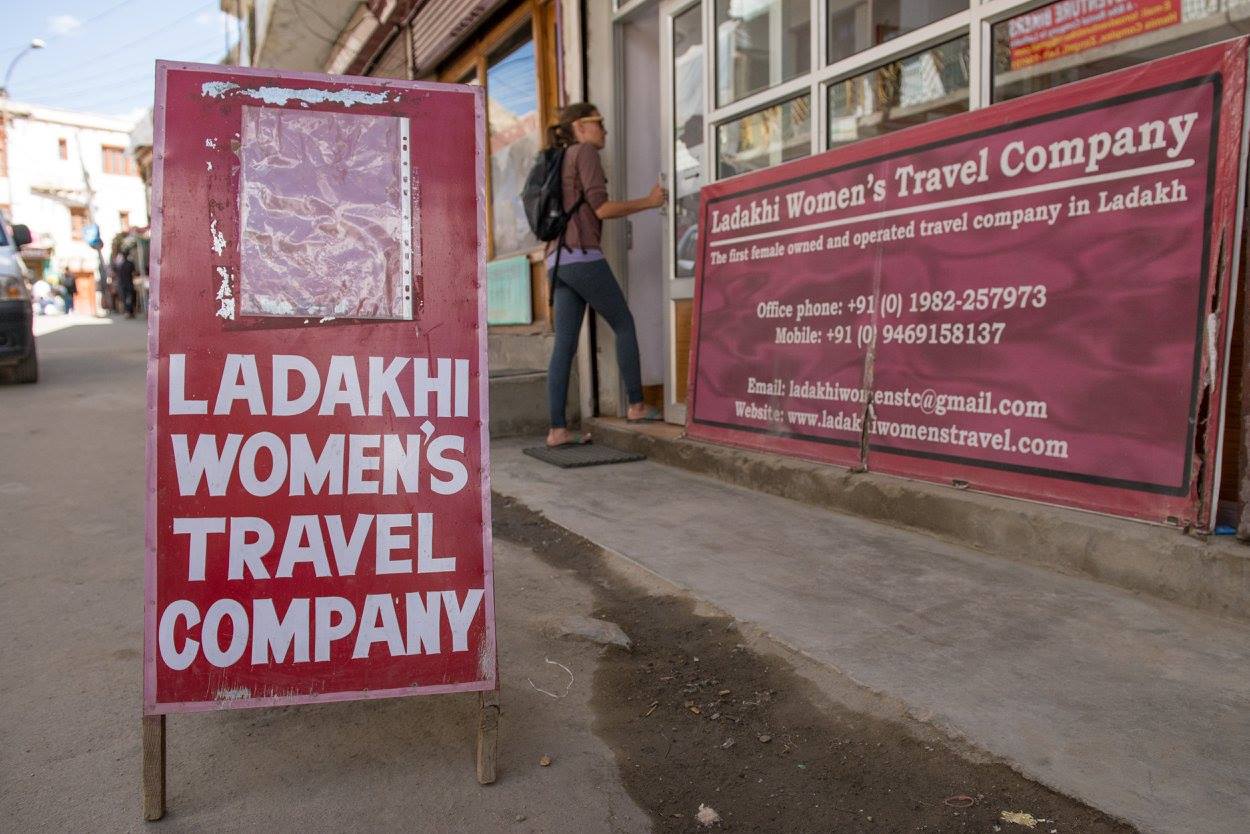
The award-winning guide didn’t have any mentors or anyone to guide her in her travel business and no women to look up to. There are few if any women in local government or business. For the most part, women don’t have any rights, local women activists told Asian Age last year.
Despite the challenges, Thinlas has been able to build a business that helps empower women.
Thinlas has grown the tour and trekking company from two guides in addition to herself leading the treks and tours to 11 guides and 13 porters that she contracts during the season. She also still leads treks and tours. Additionally, she has one office manager and one office assistant.
All of her guides speak English, Ladakhi, and Urdu/Hindi.
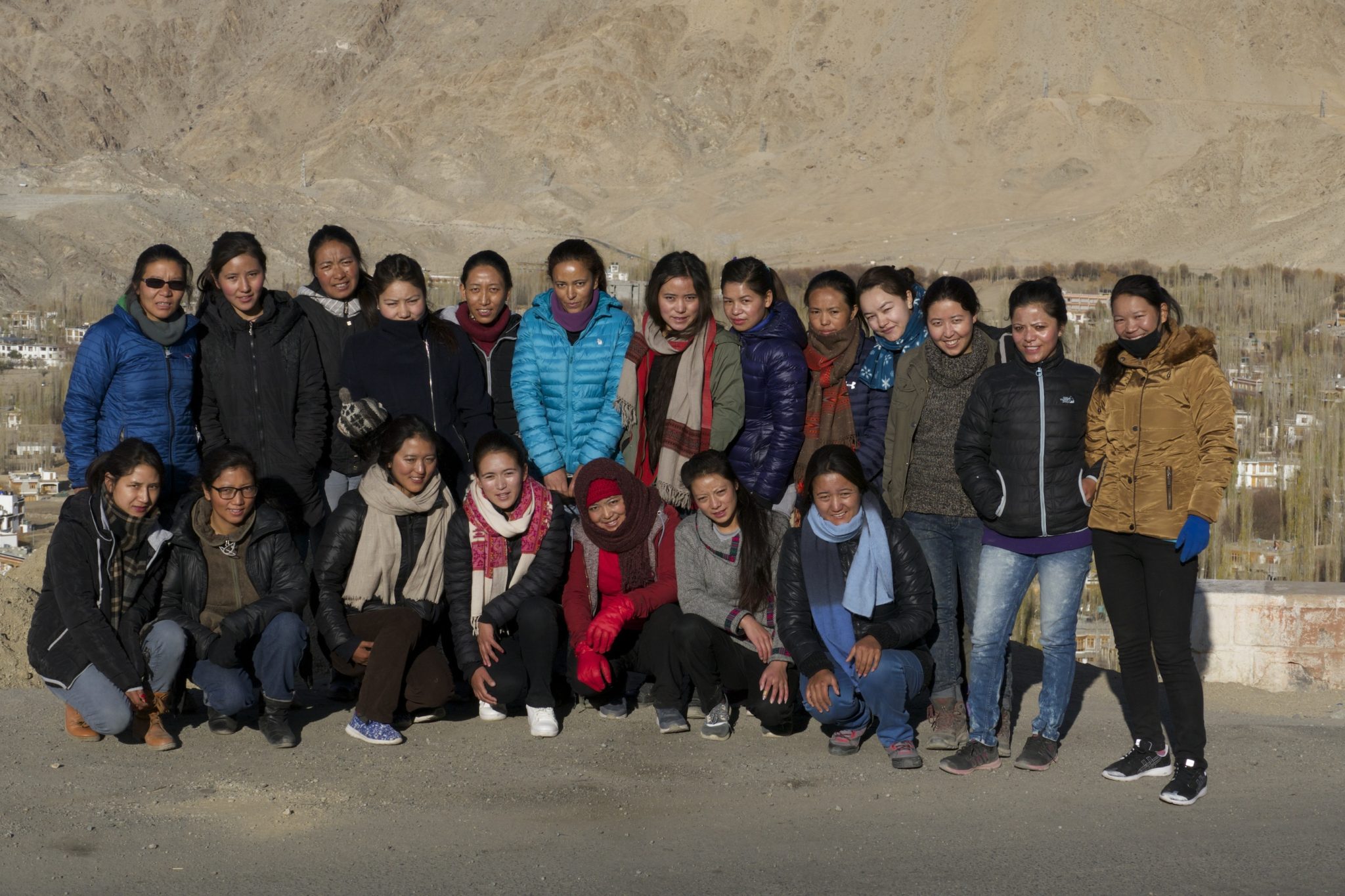
Most of the 100 two-day to 15-day treks and up to 15 tours occurring May through October. An estimated one or two treks take place during the winter, she wrote. The treks range from easy to moderate to difficult or challenging.
Travelers seeking to venture to Ladakhi have only two options: air or by road.
Many of the guides and porters change from season-to-season, but she’s able to attract many applicants because she offers training.
Among the training the guides receive through Ladakhi Women’s Travel Company is how to speak English, how to speak to tourists, first aid skills, sustainable tourism, such as “leave-no-trace practices;” education in flora and fauna, history about Ladakhi, Ladakhi culture, the monasteries, and more. Some guides get additional training at national institutions, but only a few annually obtain that additional training, she wrote.
Last year, she had three guides in training along with 25 applicants to fill 12 open positions, she wrote.
Thinlas estimates a majority of her guests are Westerners (94-96 percent) with only 1 to 2 percent being Indian and 3 to 4 percent being from another Asian country.
She believes many of her guests find her through word-of-mouth, Lonely Planet and other media outlets, or on Google.
She doesn’t keep track of how many women-only groups she’s led. Most of her treks and tours are mixed.
Last year marked her first year that Ladakhi Women’s Travel Company made a small profit.
Attitudes from other male trekkers and tour guides are the least of her concerns after being in business for nearly a decade. Her biggest challenge is opening up her operations and funding to foreign investments that she’s pushing her paperwork through India’s bureaucracy.
“It’s taking a lot of work to sort that kind of things out,” she wrote.
Cultural Exchange
Many of her guests stay in homestays with local Ladakhi women during their treks and tours and she supports sustainable tourism.
Having guests stay in local homes rather than camp is sustainable, Thinlas explained.
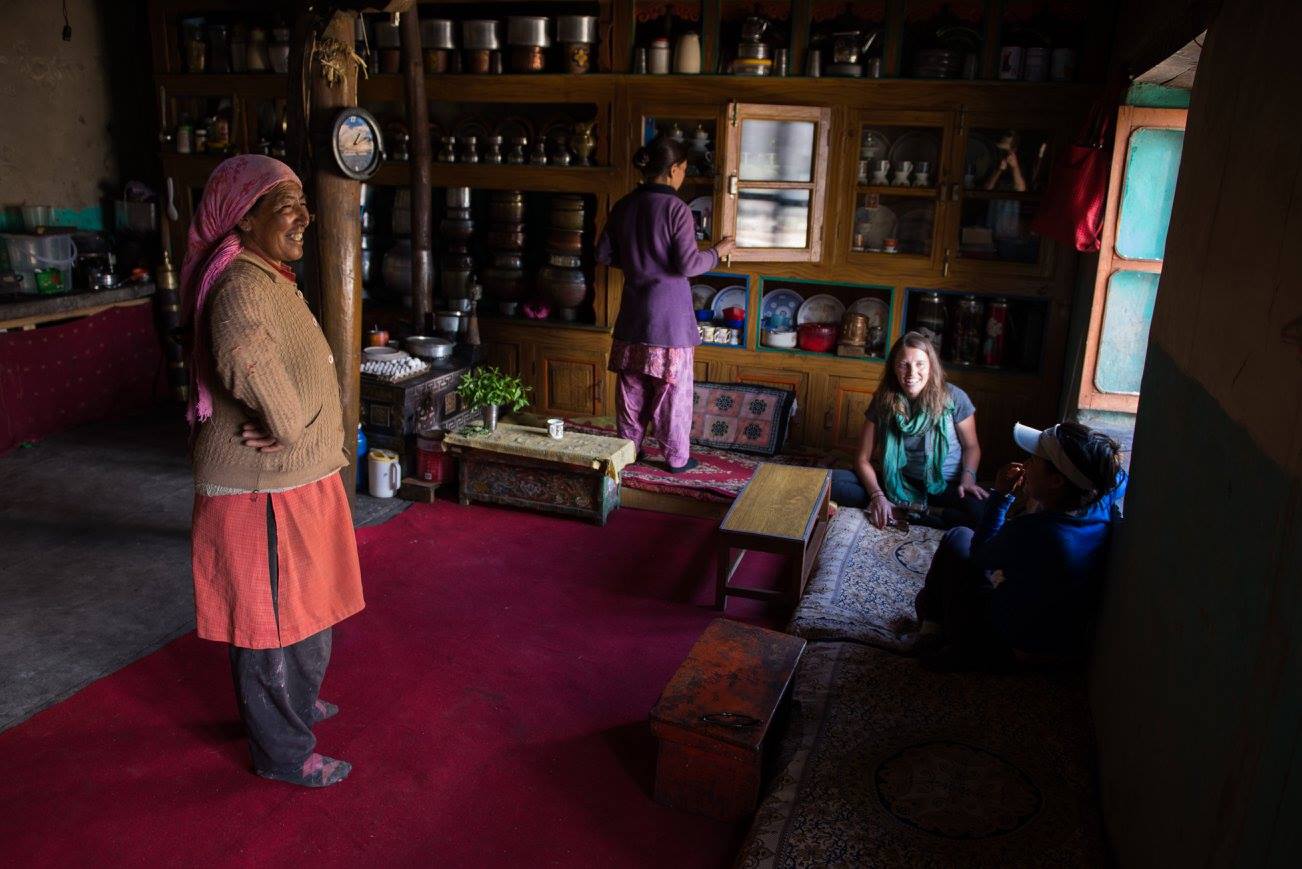
“It’s better for the local environment since camping usually requires pack animals that eat the very limited vegetation along the trekking routes. This leaves little for the animals that normally live there,” she wrote.
“It also strengthens the villages since [villagers] can earn an income from tourism rather than leaving the village for employment in the larger towns,” she continued. “And it also means that women have more income since they are often the ones looking after the house in the village.”
It’s a win-win for guests and the hosts.
“Many of them enjoy it,” she wrote of her guests.
Hosts also enjoy it.
“They also like it,” she wrote. “They get both income and they also get exposed to other cultures.”
Climbing The Mountain
The company has also inspired other women to become trekking guides.
“Now more women want to become trekking guides,” wrote Thinlas. “Some of my guides have said that if there was no all-women company they would not work as a guide at all.”
She appreciates the fact that her example is empowering other women.
“I think they become more confident and they become more economically independent,” she wrote.
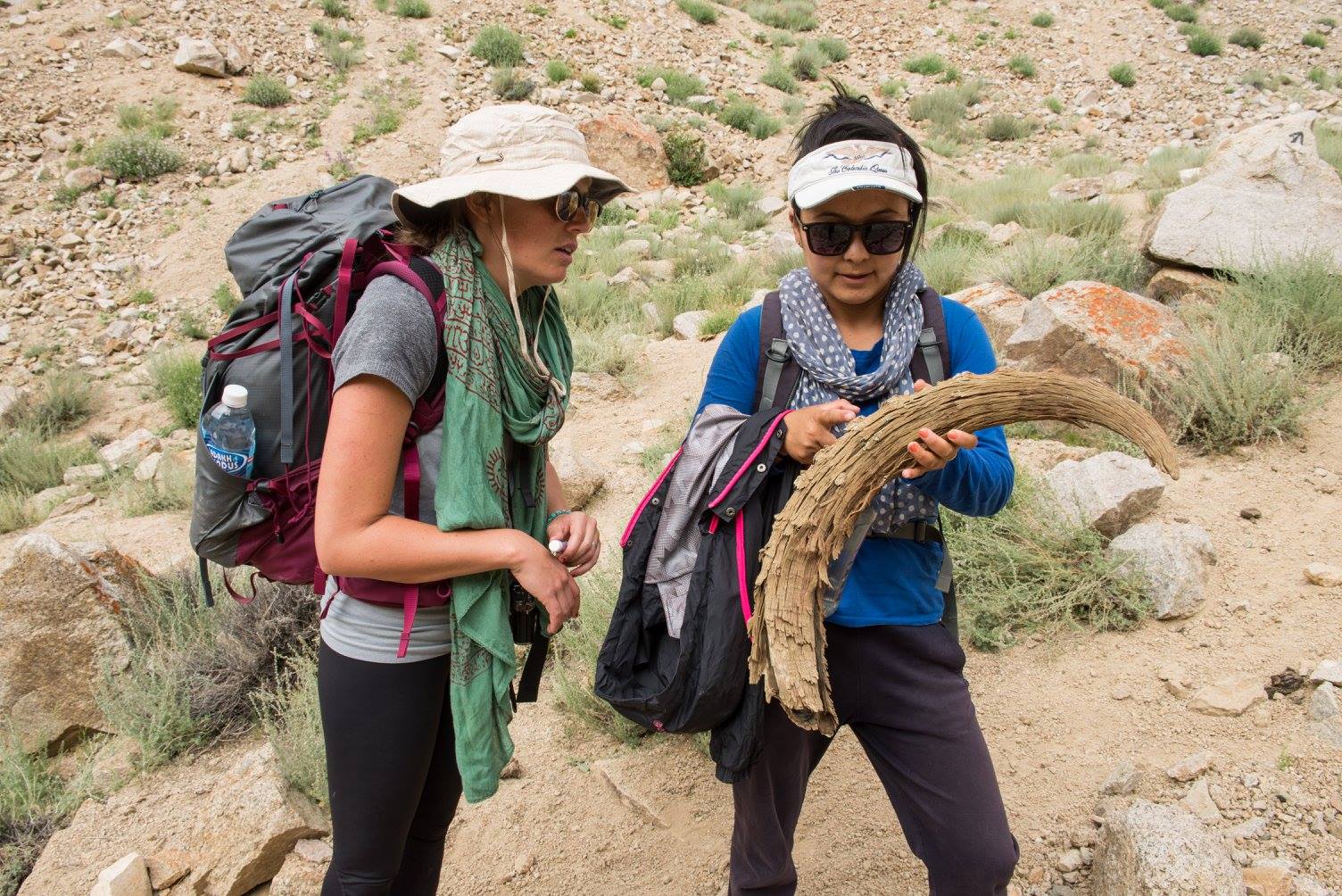
It has also helped women travelers seeking to be guided by women guides.
“In the past, when people asked for a female trekking guide some other companies would simply say that there were no female Ladakhi trekking guides, so they didn’t have to arrange for one,” she wrote.
Today, because of her company, other companies “have to arrange a female guide if the client asks for one,” she wrote.
“They can’t lie,” wrote Thinlas. “So, it even helps women that don’t work for us.”
Increasing Tourism
Thinlas is concerned about increasing tourism to Ladakhi, due to the area appearing in a popular Indian film a few years ago.
“This greatly increased the popularity of Ladakhi as a tourist destination amongst Indians,” wrote Thinlas.
She isn’t against the increase in tourism, but she wants the local government to protect the region’s delicate ecosystem.
“I want to keep Ladakhi clean. Ladakhi is a very fragile ecosystem. We need to maintain balance to be able to survive here,” wrote Thinlas. “I would be happier if the number of tourists reduced for a while until the government can put infrastructure and policies in place to deal with tourism better.”
Book your next Ladakhi trekking adventure with Girls That Roam Travel. Contact Heather Cassell at Girls That Roam Travel at 415-517-7239 or at .
To contract an original article, purchase reprints or become a media partner, contact .







